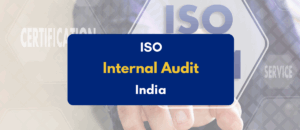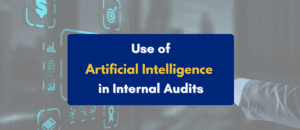Auditing cloud computing services is crucial in today’s cloud-reliant digital world, especially for data security and privacy.
Key audit challenges include evaluating service provider security measures and access controls along with checking compliance. Learn with us the basics of these audits.
What is Cloud Computing?
Cloud computing is like renting computer power and services online instead of owning physical hardware.
This gives individuals and businesses access to powerful computing without big upfront costs.
Benefits:
- Flexibility: Easily adjust computing power as needed.
- Cost Savings: Pay only for what you use, avoiding expensive equipment and maintenance.
- Accessibility: Access services from anywhere with an internet connection.
- Reliability: Cloud providers offer dependable uptime with backup systems.
Types of Cloud Services:
- IaaS (Infrastructure as a Service): Renting basic computing resources like servers and storage. You manage the software.
- PaaS (Platform as a Service): A platform for building and running apps without managing the underlying infrastructure.
- SaaS (Software as a Service): Using software applications over the internet (e.g., Gmail).
Cloud Deployment Models:
- Public Cloud: Services available to everyone over the internet (e.g., AWS, Azure, GCP).
- Private Cloud: Resources dedicated to a single organization.
- Hybrid Cloud: A mix of public and private clouds.
Why is Auditing Cloud Computing Services Crucial?
India’s cloud computing market is booming. Banks, hospitals, startups, and even the government are moving their data to the cloud.
However, with more data, come more risks. And that’s where auditing steps in.
Here are a few reasons why auditing cloud computing services becomes essential:
Rise in Data Breaches & Cyber Threats
Cloud services store vast amounts of sensitive data (personal, financial, and corporate).
India faces increasing cyberattacks (e.g., ransomware, data breaches). Audits help identify vulnerabilities in cloud infrastructure and enforce security best practices.
Compliance Is Mandatory
Industries like banking, healthcare, and insurance are legally required to follow certain rules.
The IT Act 2000, CERT-IN guidelines, RBI guidelines and even MeitY (Ministry of Electronics & IT) recommends regular audits for government cloud adoption.
Business Continuity & Reliability
Cloud outages (e.g., AWS or Azure downtime) can disrupt businesses.
Audits assess disaster recovery plans and uptime SLAs to ensure reliability.
Third-Party & Supply Chain Risks
Many Indian firms rely on global cloud providers (AWS, Google Cloud, Microsoft Azure).
Audits verify if these providers comply with Indian laws and data localization requirements.
Prevents Data Localization Violations
RBI and DPDPA require certain data to be stored only in India.
Audits ensure cloud providers adhere to data sovereignty rules.
Detects Insider Threats & Misconfigurations
Misconfigured cloud storage (e.g., open S3 buckets) leads to leaks.
Audits track access controls and user activity logs to prevent insider misuse.
Builds Trust
Companies handling Aadhaar, health, or financial data need audit trails for transparency.
Regular audits improve corporate governance and stakeholder confidence.
Key Considerations for Cloud Computing Service Audit
Some of the main areas that trusted cloud computing audit service providers like PKC Management Consulting focus on include:
Encryption:
Cloud providers typically offer encryption mechanisms to protect data both in transit and at rest.
Implementing strong encryption algorithms and securely managing encryption keys are essential components of a robust data security strategy.
Access Control:
Controlling access to data is crucial for preventing unauthorized users from viewing, modifying, or deleting sensitive information.
Role-based access control (RBAC), multi-factor authentication (MFA), and fine-grained access controls help enforce least privilege principles, ensuring that users only have access to the data and resources necessary to perform their tasks.
Network Security:
Securing the network infrastructure that facilitates communication between users and cloud services is essential for protecting against external threats.
Firewalls, intrusion detection and prevention systems (IDPS), and virtual private networks (VPNs) help safeguard network traffic and mitigate security risks such as malware and DDoS attacks.
Identity and Credential Management:
Verifying the identities of users and ensuring the integrity of their credentials are critical aspects of data security.
Identity management solutions, such as single sign-on (SSO) mechanisms and identity providers (IdPs), help authenticate users and manage their access privileges effectively.
Strong password policies, regular credential rotation, and account monitoring further enhance security.
Data Loss Prevention (DLP):
Preventing the accidental or intentional loss of data is essential for maintaining data confidentiality.
DLP solutions help organizations identify, monitor, and protect sensitive data from unauthorized disclosure or exfiltration.
Data classification, content inspection, and policy enforcement assist in detecting and preventing data leakage incidents.
Compliance and Auditing:
Adhering to regulatory requirements and industry standards is crucial for ensuring data security and privacy.
Regular audits and assessments help validate compliance with regulations such as GDPR, HIPAA, and PCI DSS.
Compliance certifications from independent auditors provide assurance to customers regarding the security posture of cloud service providers.
Steps Involved in Auditing Cloud Services
Auditing cloud services is a step-by-step process that helps you find security gaps, compliance issues, and performance flaws.
Here’s how it works:
Define the Audit Scope
Identify what will be audited (e.g., specific cloud services like IaaS, PaaS, SaaS).
Key Actions:
- Determine if auditing a public, private, or hybrid cloud.
- Define whether the focus is on security, compliance, performance, or cost.
- Identify applicable regulations (e.g., DPDPA, RBI guidelines, ISO 27017).
Review Access Controls
Ensure only authorized users access cloud resources.
Key Actions:
- Check Identity & Access Management (IAM) policies.
- Verify Multi-Factor Authentication (MFA) enforcement.
- Review role-based access controls (RBAC) and least privilege principles.
- Look for orphaned accounts or excessive permissions.
Check Data Security Practices
Ensure data is protected at rest and in transit.
Key Actions:
- Verify encryption (AES-256 for storage, TLS 1.2+ for transmission).
- Check for misconfigured storage (e.g., open S3 buckets).
- Assess data masking & tokenization for sensitive data.
- Ensure key management (HSM/KMS) is secure.
Analyze Logs & Event History
Detect unauthorized activities or breaches.
Key Actions:
- Review cloud audit logs (AWS CloudTrail, Azure Monitor).
- Check for unusual login attempts or suspicious API calls.
- Ensure log retention meets compliance requirements.
- Verify if SIEM tools (Splunk, Sentinel) are integrated.
Evaluate Incident Response Plans
Ensure the cloud provider can handle security breaches.
Key Actions:
- Check if incident response protocols exist.
- Verify automated alerts for anomalies.
- Test breach notification timelines (as per DPDPA).
- Review past incident reports & remediation steps.
Review Documentation & Policies
Ensure compliance with legal and internal policies.
Key Actions:
- Check Service Level Agreements (SLAs) for uptime guarantees.
- Verify data processing agreements (DPAs) for GDPR/DPDPA compliance.
- Assess vendor risk assessments for third-party cloud providers.
Test Backup & Recovery
Ensure data can be restored after a failure.
Key Actions:
- Verify backup frequency & retention policies.
- Conduct a mock disaster recovery drill.
- Check if backups are encrypted & geographically distributed.
Identify Risks & Give Recommendations
Highlight vulnerabilities and suggest improvements.
Key Actions:
- Document security gaps (e.g., weak encryption, lack of MFA).
- Recommend patch management & vulnerability fixes.
- Suggest cost optimization (e.g., removing unused cloud resources).
- Provide a remediation roadmap for compliance gaps.
Author

Renfred

Nishanth

Raghuram

 Expert verified
Expert verified 

